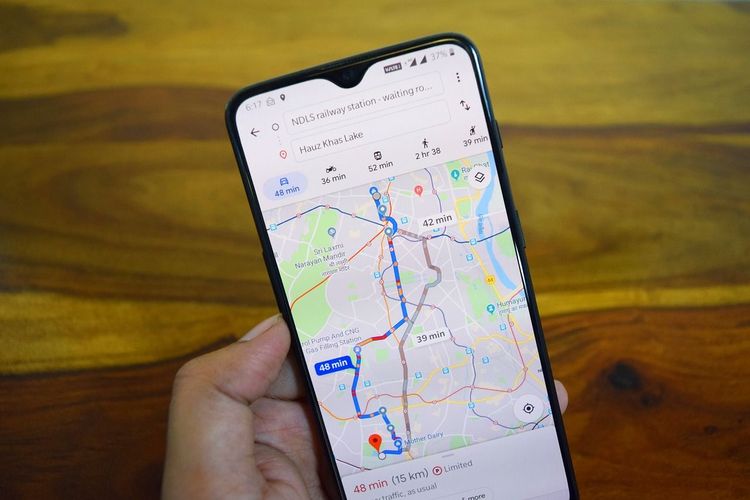Standard AI Announces Strategic Shift to Vision Analytics Solutions
Standard AI, a San Francisco-based artificial intelligence company, has announced a shift in focus from autonomous checkout systems to providing computer vision analytics for retailers. This strategic pivot comes as the company reaches a significant milestone, achieving a valuation of $1.5 billion.
In line with this new direction, Standard AI has promoted COO Angie Westbrock to CEO and SVP of Technology Strategy David Woollard to CTO.
Innovative Solutions for Retailers
The company’s new suite of vision analytics products aims to enhance retailer insights into shopper behavior, optimize merchandising strategies, reduce out-of-stock items, and prevent loss—all without using facial recognition or collecting personally identifiable information.
“We found that by addressing specific challenges like analyzing shopper interactions and monitoring stock levels, retailers can achieve ROI and see immediate returns on their investments,” Westbrock shared in an exclusive interview. “This targeted approach allows us to deliver a more tangible solution.”
Adapting to Retail Market Realities
Founded in 2017, Standard AI initially focused on making autonomous checkout mainstream. However, mass adoption has been hindered by high costs and slower-than-expected consumer uptake.
“Autonomous checkout hasn’t yet scaled to the mass market,” Westbrock noted. “Infrastructure and computing costs have posed barriers, but the main challenge comes from slower shopper adoption, which has led to low returns on investment.”
Recognizing the potential in the advanced AI models developed for autonomous systems, which offer up to 98% accuracy in tracking products and shopper actions, the company identified valuable applications beyond cashierless technology.
“The autonomous tech stack we’ve built is the foundation for our vision products,” Westbrock explained. “While we began with the complex challenge of autonomous checkout, this technology has broader applications.”
Harnessing AI for Valuable Insights
The new vision analytics tools use Standard AI’s tech stack to deliver real-time insights to retailers without necessitating a fully autonomous environment. Key features include heat maps for detailed shopper movement analysis, proactive inventory management through out-of-stock detection, and the ability to measure potential lost sales from items being unavailable.
“The insights we provide are akin to how Google Analytics transformed e-commerce,” Westbrock stated. “Understanding how shoppers engage with products and where purchases are made—this level of information has never been available before.”
Collaboration with partners like Google Cloud ensures the necessary computing infrastructure to support this AI-driven future for retailers, while Standard AI’s expertise in software accuracy remains a key differentiator.
Competing in a Crowded Market
This pivot places Standard AI in competition with major retail analytics providers like IBM, Oracle, SAP, and Salesforce. However, the company is confident that its comprehensive tracking capabilities and high-precision AI models set it apart in a crowded landscape. “The only thing worse than no data is bad data,” emphasized Westbrock, highlighting their commitment to data fidelity.
As retailers increasingly adopt data-driven strategies to stay competitive in the evolving e-commerce landscape, Standard AI’s technology enables them to optimize store layouts, product placements, and inventory management in unprecedented ways.
Navigating Challenges in Autonomous Checkout
The company's shift mirrors the broader struggles faced by startups in developing fully autonomous retail systems that can realistically replace traditional checkout methods. While Amazon's investments in its “Just Walk Out” technology have resulted in a few fully autonomous stores, significant expansion beyond its own operations has not yet materialized.
For AI startups that initially focused on rapid advancements in autonomous shopping, pivoting to adjacent areas like vision analytics may present a more viable path for growth. Standard AI’s move could prompt others in the space to reconsider their market strategies.
Nonetheless, the company is optimistic about AI’s long-term potential to reshape physical retail. “This shift is about building the infrastructure for the future,” Westbrock said. “We aim to provide the software elements that bring this infrastructure to life and enable a future-ready shopping experience.”
Industry Insights
In a recent interview, Garry Tan, CEO of Y Combinator and Standard AI board member, emphasized the transformative impact of AI on the retail sector: “AI is unlocking new capabilities across industries, especially in retail. The rapid innovation in AI can enhance personalization, optimize inventory management, and streamline supply chain operations. With this pivot, Standard AI is at the forefront of delivering insights that were previously unavailable in the retail space, deepening our understanding of the dynamics between shoppers, products, and interactions in physical environments.”







